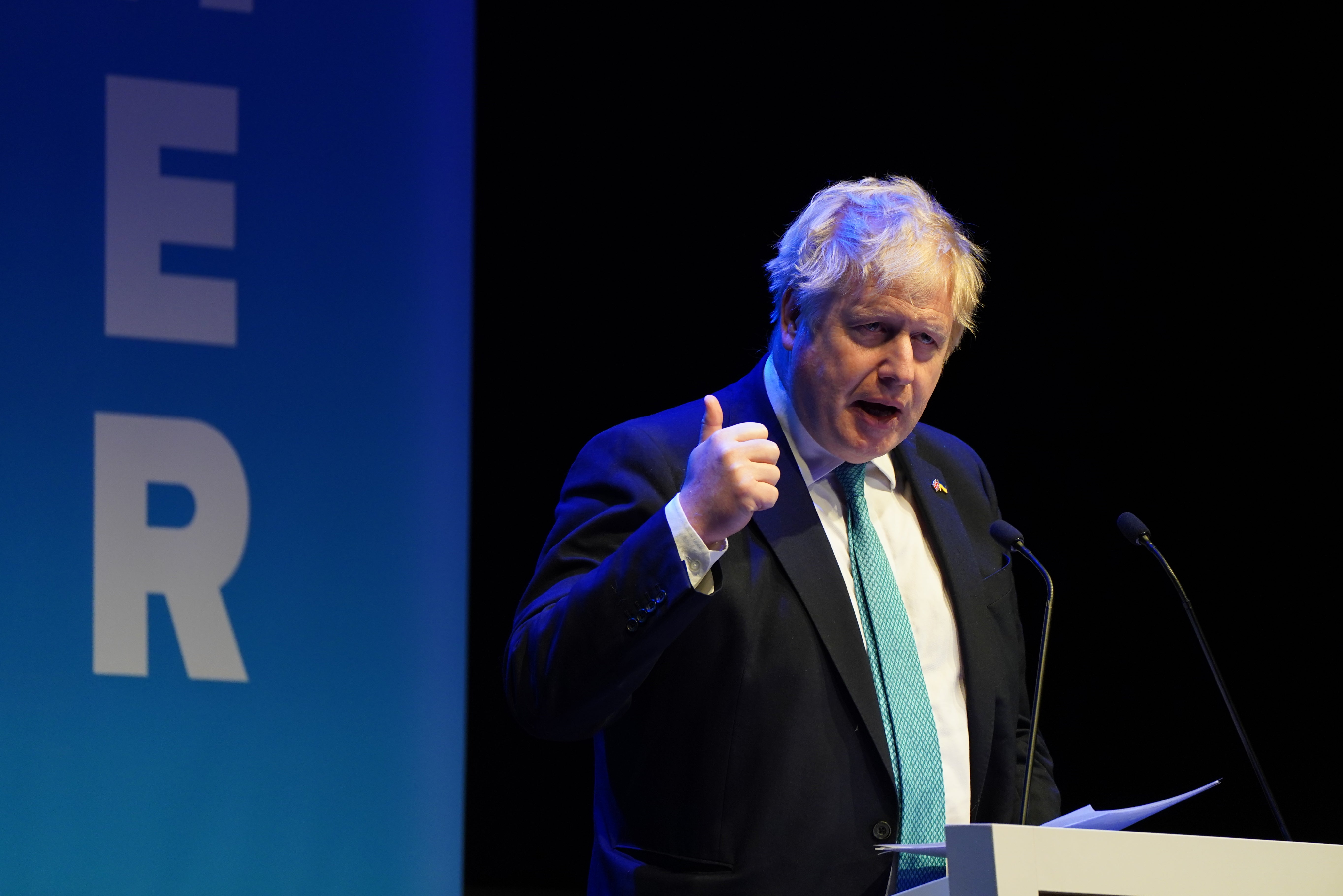Ukraine crisis shows Boris Johnson must drop opposition to EU defence pact, Tories say
Conservative European Forum calls for closer cooperation – to allow UK to rapidly ‘deploy forces around Europe’
Your support helps us to tell the story
From reproductive rights to climate change to Big Tech, The Independent is on the ground when the story is developing. Whether it's investigating the financials of Elon Musk's pro-Trump PAC or producing our latest documentary, 'The A Word', which shines a light on the American women fighting for reproductive rights, we know how important it is to parse out the facts from the messaging.
At such a critical moment in US history, we need reporters on the ground. Your donation allows us to keep sending journalists to speak to both sides of the story.
The Independent is trusted by Americans across the entire political spectrum. And unlike many other quality news outlets, we choose not to lock Americans out of our reporting and analysis with paywalls. We believe quality journalism should be available to everyone, paid for by those who can afford it.
Your support makes all the difference.The Ukraine crisis shows Boris Johnson must drop his opposition to a defence pact with the EU to allow the UK to quickly deploy forces around Europe, a Tory group says.
The Conservative European Forum (CEF) wants Britain to join projects run by an EU body called Permanent Structured Cooperation in Defence (PESCO) – a bid to create a common defence policy.
As a first step, it argues that the prime minister should sign up to its Military Mobility project, to ease bureaucracy preventing the quick movement of military personnel and assets.
The call comes after the UK rejected a defence and security pact in the Christmas 2020 Brexit deal – and a few days before the prime minister heads to a crucial Nato summit.
The Conservatives have long opposed the UK aligning with anything that resembles an “EU army”, a controversy that helped fuel support for leaving the EU.
But the CEF said Russia’s invasion of Ukraine had underlined the need to “effectively respond to existential threats” and dismissed any fears that integration will “infringe UK sovereignty”.
Its report, entitled Keep Calm and Defend Europe, pushes for a Framework Participation Agreement with the EU and a separate tie-up with the European Defence Agency.
The Forum’s chair, former deputy prime minister David Lidington, said: “The report today highlights the changing nature of the EU’s more collective approach to security and defence.
“The UK needs to understand these changes and seize on the opportunities that they present.”

The report’s author, Dr Garvan Walshe, a former security policy adviser to the Conservative Party, said it was time to grasp “previously missed opportunities”.
“The recent invasion of Ukraine has demonstrated the importance of logistical coordination and military mobility between allies,” he said.
“Without delay, the UK should seek to join the EU’s Permanent Structured Cooperation in Defence projects that benefit UK security.
“Signing up to the Military Mobility project, like the US, Canada and Norway did last year, would be an important first step.”
The UK’s decision not to pursue a defence and security arm to the Brexit deal also shut down access to vital criminal databases, including records of stolen identities and wanted people.
The prime minister will head to the Nato summit in Brussels on Thursday, which will be dominated by the Ukraine crisis and efforts to thwart Russia’s war on the country.
His priority is thought to be securing a one-to-one meeting with the US president Joe Biden – although an invitation to attend the European Council meeting in the same city is also possible.
The move would symbolise a warming of relations with the EU, brought about by co-operation after Russia’s invasion of Ukraine, after years of spats over Brexit and Covid vaccines.
Subscribe to Independent Premium to bookmark this article
Want to bookmark your favourite articles and stories to read or reference later? Start your Independent Premium subscription today.



Join our commenting forum
Join thought-provoking conversations, follow other Independent readers and see their replies
Comments